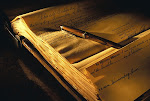
Blog Stats
- 92,022 hits
Archives
-

1 - YouTube
3 - Useful Links
- Architects and Engineers for Truth 0
- Bills going before Parliament 0
- British Law – Legislation UK Law direct from the source. 0
- British Parliament Records 0
- Cop Block UK 0
- Cop Block US 0
- Meltdown 2017 0
- Pageantry and PreCrime 0
- Peace Strike 0
- Public Access to Courts Electronic Records (US Courts) 0
- US Courts Public Information 0
- What Do They Know? 0
- WikiLeaks – (Dec 2010) 0
4 - News Media
5 - Documents
6 - UK Law
- Data Protection Act 1998 UK 0
- Freedom of Information Act 2000 UK 0
- Police and Criminal Evidence Act 1984 UK 0
- Prevention of Terrorism Act 1974 UK 0
- Prevention of Terrorism Act 2005 UK 0
- Public Order Act 1986 UK 0
- Rice v Connoly 1966 QB – Refusal to answer police questions (Win) 0
- Terrorism Act 2000 UK 0
7 - Occupy Movement
-
Join 93 other subscribers
"not to simply 'give the public what it wants'–but to inform, to arouse, to reflect…and sometimes even anger public opinion." – JFK





